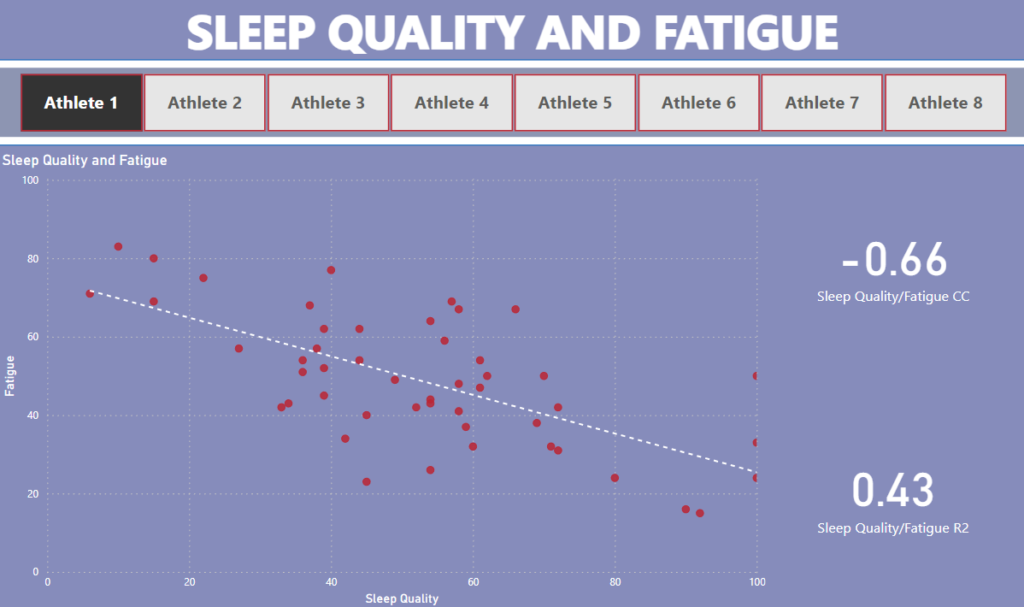As a practice of self analysis I often ask myself “does this matter” in regards to the many things I have to do as a sport scientist. Am I providing value with this task or am I just spinning my wheels? To answer “does this matter” I use statistics. Among the statistical measures I use most often is R2, but what exactly is that and how can it help a sport scientist? Well, first, it’s important to remember the job of a sport scientist is to convey information and provide recommendations to staff. Without a solid understanding of statistics, you can’t provide those necessary recommendations.
So what is R2? It is simply a measure to assess how well one variable influences another. Let’s consider an example. Does sleep quality have an influence on fatigue? In the below example we can see that for this athlete, sleep quality has an R2 value of 0.43. What exactly does that mean and why should you care as a sport scientist?

Well, R2 tells us how much of the variance in one variable can be explained by another variable. In this case, it tells us how much variance in fatigue can be explained by this athletes’ sleep quality. An R2 of 0.43 means 43% of the variance in fatigue can be explained by sleep quality.
So what’s the takeaway for this athlete? Get better sleep! As we see from the scatter plot, if their sleep quality goes up, their fatigue goes down. With R2 we can quantify that relationship. This metric can be used to answer a multitude of questions for sport scientists:
• Does eccentric braking duration on a drop jump affect sprint distance and tell us about and athletes training status?
• Does post training fluid loss tell us anything about self reported RPE?
• How does the relative humidity affect game total distance?
The use cases are endless, only limited by your imagination. We have a lot yet to learn in human performance and R2 is a great statistical measure to start using to ask questions and get quick, easy to understand answers regarding relationships between performance measures. It helps provide the all-important actionable insights into athlete health and performance and answer the question, “Does this matter”.



